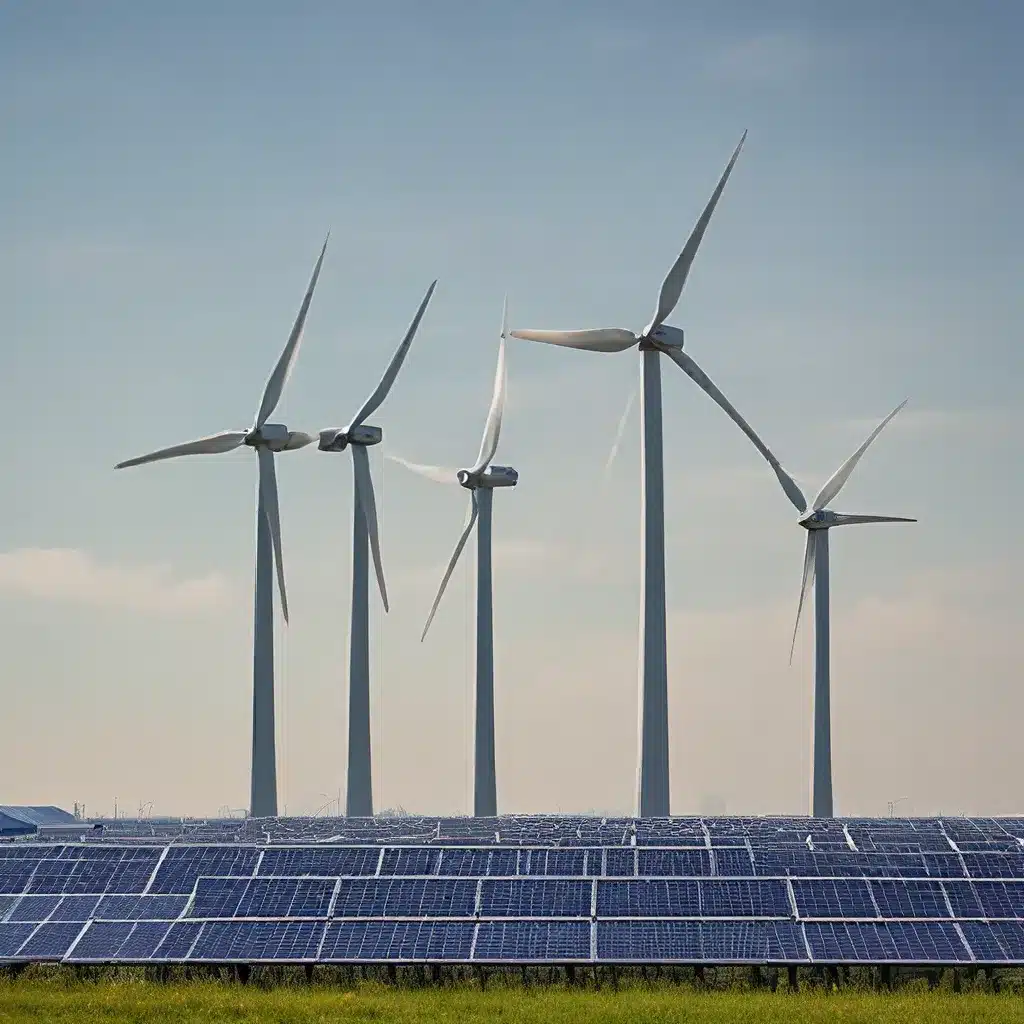
In the ever-evolving landscape of renewable energy, a fascinating intersection is emerging – the sharing economy. This dynamic fusion of sustainability and collaborative consumption is shaping innovative business models that are poised to revolutionize the way we produce, distribute, and consume clean energy.
As a sustainability enthusiast, I’ve been closely observing this trend, and I’m eager to share my insights with you. Let’s dive in and explore how the sharing economy is transforming the renewable energy sector, unlocking new opportunities for individuals, communities, and businesses alike.
Decentralizing Power Generation
One of the most exciting developments in the renewable energy and sharing economy convergence is the decentralization of power generation. Traditional energy systems have long been dominated by large, centralized power plants, but the rise of distributed renewable technologies, such as rooftop solar and community wind farms, is empowering individuals and communities to become active participants in the energy ecosystem.
Through peer-to-peer energy trading platforms, consumers can now generate their own renewable energy and sell any excess back to the grid or directly to their neighbors. This collaborative model not only fosters local energy resilience but also promotes a sense of community and shared responsibility for our energy future.
Firewinder, a leading provider of renewable energy solutions, is at the forefront of this movement, empowering individuals and communities to harness the power of the sun, wind, and water through innovative technologies and sharing economy business models.
Shared Ownership and Cooperative Models
Another remarkable development in the renewable energy and sharing economy intersection is the rise of shared ownership and cooperative models. Instead of individuals or businesses solely owning renewable energy assets, such as solar panels or wind turbines, people are coming together to collectively invest in and manage these resources.
This cooperative approach not only spreads the financial burden but also cultivates a sense of shared responsibility and community engagement. Individuals can participate by purchasing a stake in the cooperative, which entitles them to a portion of the generated energy or the financial returns.
These cooperative models are particularly beneficial for underserved communities or those with limited access to traditional financing options. By pooling resources and collectively owning the renewable energy infrastructure, these communities can overcome barriers and enjoy the benefits of clean, affordable energy.
Peer-to-Peer Energy Trading
One of the most dynamic aspects of the renewable energy and sharing economy intersection is the emergence of peer-to-peer energy trading platforms. These innovative digital marketplaces allow individuals and businesses to directly buy and sell excess renewable energy, bypassing traditional utility companies and energy brokers.
Through these platforms, prosumers (individuals or entities that both produce and consume energy) can monetize their renewable energy assets, while consumers can access clean energy at competitive prices. This decentralized model not only promotes energy democracy but also incentivizes further investment in renewable energy technologies.
Firewinder is leading the charge in this space, providing cutting-edge peer-to-peer energy trading solutions that empower individuals and communities to take control of their energy future.
Collaborative Consumption and Shared Assets
The sharing economy has also influenced the way we consume and utilize renewable energy assets. Instead of individual ownership, collaborative consumption models are emerging, where people and businesses share or rent renewable energy equipment, such as solar panels, battery storage systems, and electric vehicles.
This collaborative approach not only reduces the upfront costs for consumers but also encourages more efficient use of resources. By sharing these assets, we can maximize their utilization and minimize waste, ultimately contributing to a more sustainable energy ecosystem.
Challenges and Considerations
While the renewable energy and sharing economy convergence presents tremendous opportunities, it also faces unique challenges and considerations that must be addressed.
Regulatory frameworks, for instance, need to evolve to keep pace with these innovative business models, ensuring fair and equitable access to renewable energy resources. Data privacy and security concerns also arise as peer-to-peer energy trading platforms handle sensitive energy and financial information.
Additionally, social equity and inclusivity are crucial considerations, as we must ensure that the benefits of the renewable energy and sharing economy are accessible to all, regardless of socioeconomic status or geographical location.
Conclusion: A Future of Shared Sustainability
As I reflect on the transformative potential of the renewable energy and sharing economy intersection, I’m filled with optimism and excitement. Innovative business models that empower individuals, communities, and businesses to collaborate and share in the clean energy revolution are paving the way for a more sustainable and equitable future.
Through the decentralization of power generation, shared ownership and cooperative models, peer-to-peer energy trading, and collaborative consumption, we are witnessing the dawn of a new era in the energy landscape. And companies like Firewinder are at the forefront of this transformation, leading the charge towards a shared and sustainable energy future.
As we continue to explore and innovate in this dynamic space, I encourage you to stay informed, engage with your local community, and consider how you can participate in this renewable energy and sharing economy revolution. Together, we can shape a brighter, more sustainable tomorrow.

